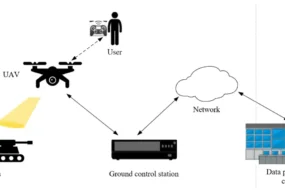
In the rapidly evolving landscape of cybersecurity, the significance of securing online transactions and user data cannot be overstated. Beyond the ubiquitous HTTPS, the next generation of Domain Validation SSL Encryption is reshaping the digital security paradigm. This comprehensive guide delves into the intricacies of domain validation certificates, shedding light on their importance and exploring the advancements in SSL encryption.
Understanding Domain Validation Certificates
Domain Validation SSL Certificates, commonly known as DV certificates, play a pivotal role in establishing a secure connection between a user’s browser and a website. Unlike Extended Validation (EV) or Organization Validation (OV) certificates, DV certificates focus on verifying only the domain ownership. This simplicity ensures a swift issuance process, making DV certificates an attractive choice for many website owners.
Key Characteristics of Domain Validation SSL
Swift Issuance Process: DV certificates boast a rapid issuance process, making them ideal for websites requiring immediate security implementation.
Basic Validation: The validation process primarily involves confirming domain ownership through email verification or DNS record updates.
Cost-Effective Security: Compared to EV and OV certificates, DV certificates are budget-friendly, providing essential security without breaking the bank.
The Encryption Backbone: Domain Validated SSL
The crux of SSL encryption lies in its ability to secure data in transit. Domain Validated SSL certificates utilize robust encryption algorithms to safeguard information exchanged between users and websites. The encryption not only prevents eavesdropping but also instills confidence in users regarding the authenticity of the website.
Navigating the Advancements
The digital landscape is witnessing continuous advancements in SSL encryption. From the emergence of new algorithms to improved key lengths, staying abreast of these developments is crucial for ensuring the highest level of security for your website visitors.
Quantum-Safe Encryption
As quantum computing inches closer to reality, SSL encryption is adapting to withstand potential threats. Quantum-safe encryption algorithms are being developed to ensure the continued security of data even in the face of quantum advancements.
Multi-Domain SSL Certificates
In a world where businesses operate across multiple domains, Multi-Domain SSL certificates provide a unified solution. These certificates secure multiple domains with a single certificate, streamlining security management for website owners.
Common Concerns Addressed
Perceived Weakness of DV Certificates: While DV certificates focus on domain ownership, the perception of potential vulnerability persists. It’s crucial to understand that for many websites, especially those not handling sensitive information, DV certificates provide an appropriate level of security.
SSL Certificate Expiry: Regularly updating and monitoring SSL certificates is vital to prevent disruptions in website security. Automated renewal processes can alleviate this concern.
Final Words
In the ever-evolving digital landscape, the importance of robust SSL encryption, particularly domain validation certificates, cannot be overstated. As we navigate the future of online security, staying informed about the latest advancements ensures that your website remains a fortress against cyber threats.
Commonly Asked Questions
1. Are DV certificates suitable for all types of websites?
Absolutely. While they may not be suitable for sites handling highly sensitive information, DV certificates provide ample security for a vast majority of websites.
2. How frequently should SSL certificates be renewed?
SSL certificates typically have a validity period of one to two years. Regularly check the expiration dates and set up automated renewal processes to ensure uninterrupted security.
3. Is quantum-safe encryption necessary for small websites?
While quantum-safe encryption is a significant advancement, its necessity for small websites depends on the nature of the data being handled. Evaluate the sensitivity of your data and adopt encryption accordingly.
4. Can one DV certificate cover multiple domains?
No, DV certificates are issued for individual domains. If you have multiple domains, consider Multi-Domain SSL certificates for comprehensive coverage.
5. What measures can be taken to enhance SSL certificate security?
Regularly update your SSL certificates, monitor their expiry dates, and stay informed about the latest encryption advancements. Additionally, implement secure practices in handling user data to fortify overall website security.
Advertisement








